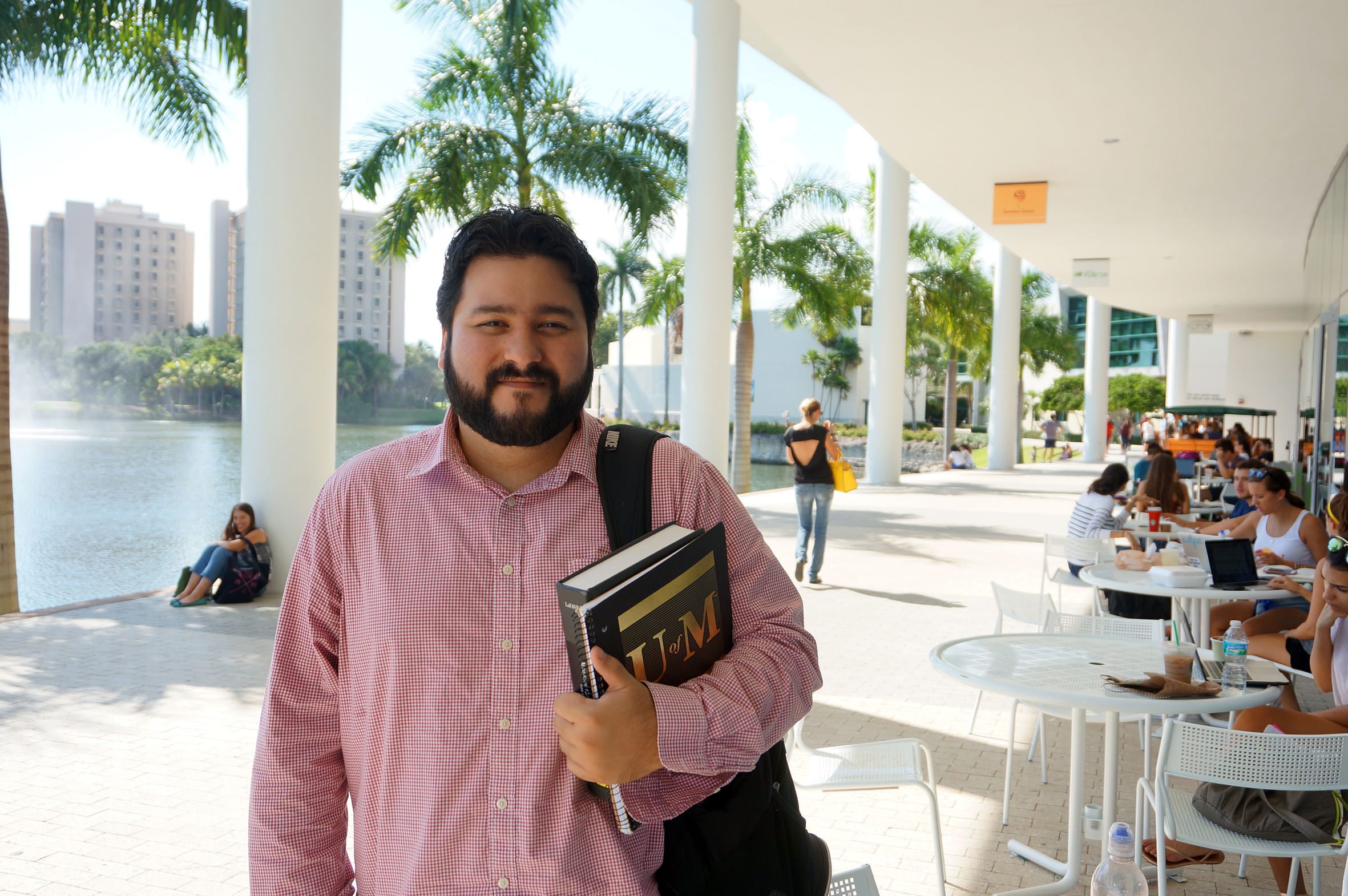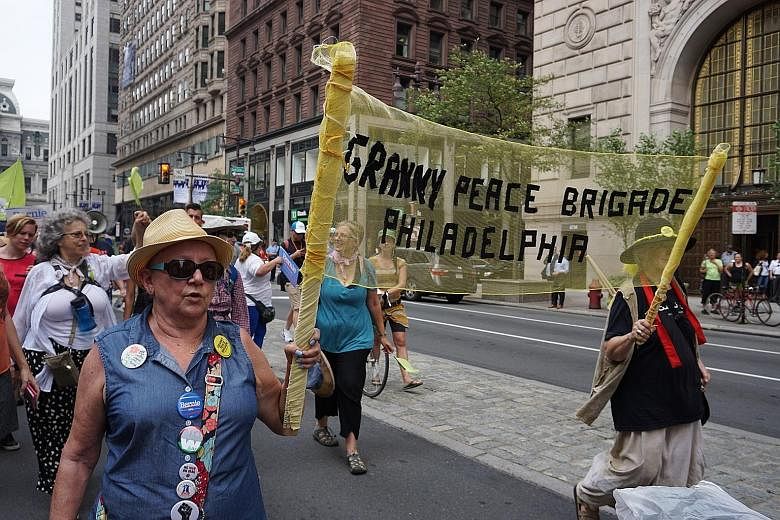WASHINGTON • Just over a year ago, Mr Bob Perls, 58 - a former Democratic lawmaker in the state of New Mexico - changed his affiliation and became an independent.
"Many of us are just sick of the games that the two parties play and sick of the hyper-partisanship and gridlock," said the president and founder of a political advocacy group called New Mexico Open Primaries.
Mr Perls is part of the critical group of swing voters that both Republican candidate Donald Trump and Democratic rival Hillary Clinton are vying to attract as polling day for the presidential election - Nov 8 - draws near.
Independent voters make up 38 per cent of Americans, according to Gallup poll figures released last month, and the proportion has been trending up over the years.
In contrast, the same poll shows that Democrats form 31 per cent of the population while Republicans form 27 per cent.

In trying to tease out the "true independents" - those who do not lean towards either party - Gallup estimated that the proportion is closer to 10 per cent.
But even that is a sizeable group, considering that President Barack Obama won the popular vote by a 4 percentage point margin against Republican candidate Mitt Romney in the 2012 presidential election.
As for which candidate the independents might vote for, a poll by The Economist/YouGov, released on Wednesday, showed that 47 per cent said they preferred Mrs Clinton while 40 per cent preferred Mr Trump. Yet, in other polls, Mr Trump has come out on top.
And while the jury is out on how independents will vote, in an unorthodox election such as this, where both candidates have record-high unfavourability ratings, the swing vote is coming from not only independents but also within the two major parties.
SIZE OF THE SWING VOTE

Citing data from the 2008 American National Election Study, Emory University professor Alan Abramowitz, a senior columnist for the political website Crystal Ball, argued in an article published in 2012 that independent voters are more partisan than they are actually letting on, so he believes the actual number of independents in the country is much lower than what has been polled. He said that in the November 2008 election - the last election where there was no incumbent president in the White House - "the vast majority of respondents who leaned towards a party in January 2008 ended up voting for that party's presidential candidate".
The data shows that 87 per cent of independent Democrats - those who identify themselves as independents but lean Democrat - ultimately voted for Mr Obama, while 82 per cent of independent Republicans ultimately voted for Republican candidate John McCain.
But political science professor Todd Eberly, from St Mary's College of Maryland, made the argument that the number of true independents, while not in the 40 per cent range, was still about 25 per cent.
In his 2012 study for Third Way, a centrist Democratic think-tank, he said that of those who voted for a Democrat in the 2000 House elections, 16 per cent crossed the aisle and voted Republican in 2002 and 21 per cent did so in 2004.
Among Republicans, too, 11 per cent voted Democrat in 2002 and 21 per cent in 2004.
His point was that independent voters who lean towards a certain party do change their minds over time, and this would indicate a larger pool of potential swing voters than others had suggested.
Another more recent poll, released by the Progressive Policy Institute (PPI) in April, categorised swing voters more broadly as those who "lend their support equally to Democrats and Republicans, do not strongly identify with either party, and did not vote for the same party in the last two elections".
It put the proportion of swing voters at 21 per cent of the electorate in four presidential battleground states - Florida, Ohio, Colorado and Nevada.
Associate professor of political science Melissa Miller from Bowling Green State University in Ohio said that, historically, most independents vote for the party they lean towards. However, they may not be so predictable in this election due to the unpopularity of the candidates.
"With Donald Trump unable to convince many establishment Republicans to vote (for) him, it's hard to imagine he'll have an easy time convincing independents who lean Republican. Their ties to the party are already more tenuous, and with a polarising candidate at the top of the ticket, Republican-leaning independents are definitely prime for the picking by Hillary Clinton," said Dr Miller.
One Republican who might switch his vote to the Clinton camp is University of Miami law student Frank Carrasco, 31, who has voted for the Republican candidate in every presidential election since 2004.
"I am not certain who I will be voting for in November, but I know it most definitely will not be Donald Trump," said Mr Carrasco, who lives in Florida - an important swing state in the coming election.
Mr Carrasco said he may vote for Libertarian Gary Johnson - one of the third-party candidates - on principle, but if it looks like a tight race in Florida, he would vote for Mrs Clinton to "keep Donald Trump out of the White House".
"This election has devolved from being about issues, to being about legitimacy," said Mr Carrasco. While he disagrees with Mrs Clinton on policy issues, he said he "can at least trust her experience and temperament to serve as president".
Associate professor of political science Robert Dickens from the University of Nevada, Reno explained: "One must not discount the motivating effect of Trump's offensiveness. While he counts upon angry voters' undercurrents to win, his racist, nativistic and sexist positions are driving support for his opponent. And his palpable policy ignorance in matters both domestic and foreign demonstrates the shallowness of a branded marketing approach to presidential elections."
He added that a "presidential election is serious business" and believed it would take "more than branding and anger to attract a winning margin consisting of swing voters".
Experts do not discount that Democrats may also switch camps, but most believe Mrs Clinton has a more solid backing from her base than Mr Trump.
Ms Maureen Boehm, 68, a retired educator who was undecided as to who to vote for around a month ago, said she has recently made up her mind.
The New Jersey resident, who is a Democrat but has voted for Republicans before, said she will tune in to the presidential debates to keep abreast of the news. "I will vote for Hillary Clinton; I'm just terrified of Donald Trump," she said.
PROFILE OF THE SWING VOTER
According to the poll by PPI, swing voters in the four battleground states are not just minority voters who the campaigns have focused on in recent weeks. About 71 per cent are white, while Latino voters feature more prominently than African Americans.
They are less likely to have a college education than voters overall - 44 per cent have a college degree compared with 48 per cent of all voters in the battleground states. There is a slight tilt towards women voters (52 per cent) but not a particularly significant one.
The poll goes on to say that these swing voters are "worried and looking for leaders who offer a path forward".
Experts said black voters are less likely to be swing voters because the community already has deep ties with the Democratic Party.
According to data from Gallup, since 2000 the black vote for the Democratic presidential candidate has ranged between 93 and 99 per cent.
"A two-term Obama presidency has only served to strengthen African-American ties to the Democratic Party. With recent elections as a guide, only about 1 to 5 per cent of the African-American vote is likely to 'swing'," said Dr Miller.
Support for Mr Trump from the black community was as low as zero or 1 per cent, according to some recent polls.
Latino voters, however, have less loyalty to one party.
"The Hispanic vote is not a monolith, thanks to the very different cultural and political heritage of groups within it. For example, Cuban Americans have roots in the Republican Party, while those of Puerto Rican descent tilt towards the Democratic Party," said Dr Miller.
She added that while they are unlikely to flock to Mr Trump with his "build a wall" mantra for the US-Mexico border to keep out illegal immigrants, there is also some disappointment with the Democrats after President Obama's failure to get sweeping immigration reform through Congress.
The PPI report also states that the polarising tone of the Democratic and Republican nominating battles will not appeal to swing voters.
"As self-described independents, they dislike strident partisanship. They are also far less liberal and more moderate than Democratic base voters," said the report.
Indeed, Mr Dan Howle, chairman of the board of directors for the Independent Voter Project, which hopes to reverse the trend of government dysfunction due to the polarised political environment, said what he hopes for is a neutral third party in Washington, DC.
"Independents are different in different parts of the country, but there is a universal feeling of Washington being completely and totally dysfunctional," said Mr Howle, who was a Democrat till his mid-40s, when he started a business and realised how difficult it was to run it with Democratic policies in place. He changed his party affiliation to Republican before becoming an independent a few years ago.
Mr Howle said that if he were to vote today, he would go for Mr Johnson of the Libertarian Party and his running mate, former Massachusetts governor Bill Weld.
"I think they are the jobs and wealth ticket and they would make the White House neutral and force the parties to work together," he said.
Asked whether he would swing to either of the major parties, Mr Howle - like many other undecided Americans - said he would have to wait and see: "I could never vote for Hillary Clinton. I can't vote for someone who is fundamentally dishonest. But for Donald Trump, if there is a change in tone and attitude, I could possibly vote for him - but it's not likely."


